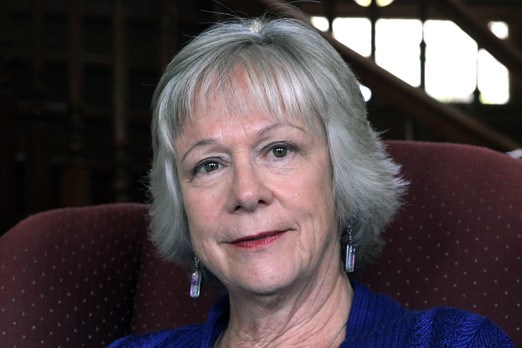Thunder Bay’s most recent recipient of the Order of Canada has spent most of her life reaching out to others.
As a child, Liz McWeeny spent several years in Uganda, where her father worked with refugees. Today, as co-chairwoman of the Overseas Protection Working Group for the Canadian Council for Refugees, she’s following in his footsteps, advocating for refugee rights and helping resettle them around the world, most often to Thunder Bay.
The grandmother-of-three says refugees should not be treated as pariahs, as far too many around the planet have been since the dawn of time.
“My attitude toward people in other countries is one of seeing them as my brothers, my sisters, my playmates. In addition to that, it’s something of a family tradition. My father worked closely with the refugee exiles from Uganda, from the southeast Asian community, who were exiled by Idi Amin,” McWeeny said Wednesday.
McWeeny said she tagged along with her father in her early 20s and then proceeded to help a number of other different populations, starting with Thunder Bay’s southeast Asian community and the Cantonese boat people.
The timing couldn’t be any more ironic, she said, in the wake of the federal Tory’s anti-refugee legislation, which passed through the House of Commons last month.
Some experts believe the Protecting Canada’s Immigration System Act serves only to punish vulnerable claimants and toughens penalties on asylum seekers who arrive en masse by boat or plane and puts too much power in the hands of the immigration minister.
It’s not lost on McWeeny.
“To have my work as a refugee advocate recognized at the same time is really encouraging,” said McWeeny, who also spends considerable time in Mexico aiding and educating some of the Western World’s most oppressed people, living at the whim of violent drug cartels which have killed thousands in recent years.
“The award itself is apolitical. The governor general doesn’t take part in partisan politics. On the other hand, the work I do is highly political. And timing or not, planned or not, it just seemed ironic that at a time when the minister chooses not to speak to the Canadian Council for Refugees about anything, and who chooses to speak against refugees in very many different ways, that a refugee advocate such as myself should be named and given such an honour (is ironic).”
According to her figures, Canada used to take in between 20,000 and 30,000 refugees each year through the resettlement program, a number that has since fallen to between 12,000 and 13,000. The number of refugees identified worldwide by the United Nations isn’t getting any smaller, however.
She’d like to see Canada do a little more, and plans to keep fighting toward that goal.
“This is my passion. Other people have passion for other social justice issues, but I guess because my roots are in it and I’ve made so much in it – I gain far more than I give, I meet wonderful people from all over the world who have such a lot to offer this country, and I also have so very many dear colleagues who I’ve met over the year that I’ve become very close to and we’re very same-minded.”
Fixing the problem won’t be easy. Countries with the resources to do so, including Canada, should do more and take more responsibility for force migration across borders.
As for Canada, the rhetoric out of Ottawa must change, and change now, McWeeny said.
“It’s a rhetoric that criminalizes people who are vulnerable and victims, and certainly not fraudsters and bogus refugees as our minister would claim,” she said.
“We need to change our conversation and recognize that people who come to our borders seeking protection have the right to a fair hearing and a fair determination to change our conversation and recognize that people who come to our borders seeking protection have the right to a fair hearing and a fair determination of their case and then an appropriate response to that decision when it’s reached.
“And right now we don’t have that.”
